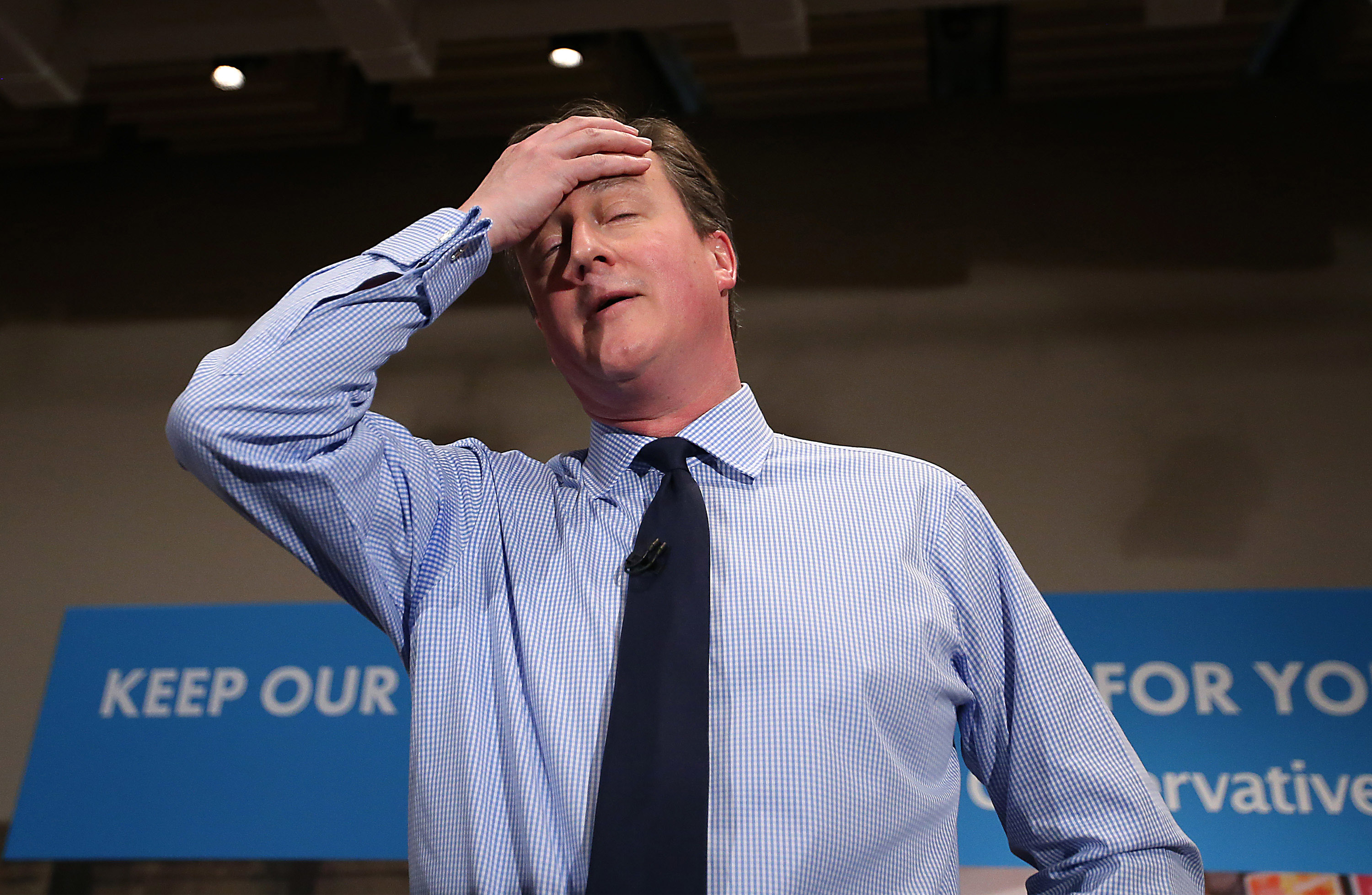
This a reference to students who only really get into gear when there’s a deadline looming.
So it goes that Cameron is at his best when under pressure.
If that’s so, expect to see a better PM than ever in the next few weeks with two major deadlines nearing.
The difference, however, is that students must do their work and stick to a timescale determined by their tutors.
Cameron has made the work and the pressure for himself.
On Scotland, the Smith Commission process may not have been his initiative alone but, as Prime Minister, he actioned it.
A process predicated on hitting arbitrary deadlines insultingly designed to appeal to shortbread-tin nationalists, like St Andrew’s Day and Burns’ Night, is fraying.
While the House of Commons passed the Scotland Act without any inkling as to how the whole package would be paid for, the House of Lords applied the brakes.
They insisted on scrutiny of the fiscal framework, the detail of how money will flow between Edinburgh and London once the new tax powers have been devolved.
Ominously, Treasury negotiator Greg Hands hinted in front of the Scottish Affairs Committee last week MPs may yet get an opportunity to discuss the fiscal framework if and when it’s agreed and give, or withhold, their blessing.
That could cause further delays to legislation that needs to be passed soon if it’s to be in place in time for the Holyrood elections in May.
Similarly, on Europe, Cameron thought he’d seen off the essay crisis by promising a referendum.
Now forced to actually follow through, he’s jetting round European capitals to convince his counterparts to back a watered-down reform package one of his backbenchers described as “poo” last week.
He’ll most likely get agreement at the European Council meeting in two weeks and that will be followed by the announcement of a referendum on June 23.
The SNP say that’s too soon after the Scottish elections, but the Holyrood result is a foregone conclusion and indyref veterans will attest six weeks is quite long enough for a referendum campaign.
The renegotiation is a self-inflicted headache but any doubt about the deal is largely confected by No 10 so the PM can return claiming victory from the jaws of defeat.
At that point collective responsibility will be suspended and ministers will be free to campaign for out.
But the big beasts such as Theresa May and Michael Gove sniff victory for the In camp and are running away from the fractious sideshow that is the various warring Out groups.
It’s believed at least five Secretaries of State will back Brexit. Chris Grayling, Ian Duncan Smith and Theresa Villiers seem dead certs.
It may or may not be coincidence that if you drew up a league table of cabinet ministers ranked on competence they’d be the ones in the relegation spaces.
Despite making life harder for himself, ultimately, Cameron will likely get a fiscal framework and an EU referendum win.
Then there’ll be gripes about the devolution settlement and a Tory party split on Europe to cope with.
But they won’t be Cameron’s concerns. He’ll leave that to the next guy, most likely George Osborne.
Apparently he hates being compared to Gordon Brown as a fine chancellor who failed when he moved to Number 10.
He may have to get used to it.
Like Blair bailing in time for Brown to have to deal with an imploding economy, Osborne may have to deal with Cameron’s legacy of unfinished essays.
But for all the problems he’s stacking up history may judge Cameron kindly. After all the ultimate test of a great PM is getting out, before you get marked down.

Enjoy the convenience of having The Sunday Post delivered as a digital ePaper straight to your smartphone, tablet or computer.
Subscribe for only £5.49 a month and enjoy all the benefits of the printed paper as a digital replica.
Subscribe